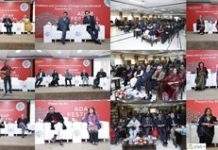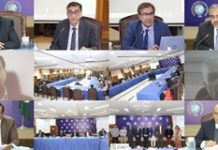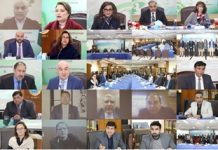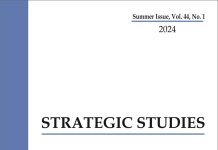Abstract:
In recognition of the crucial role of people-to-people contact through friendly exchanges and cultural relations for the promotion of peace and normalisation, Pakistan and India agreed to include these aspects as one of the eight subjects for the Composite Dialogue and Peace Process initiated in 2004. Since then, the two countries have been able to make impressive progress in this area, leading to an expansion in people-to-people contacts through the exchange of visits by performing artists, poets, lawyers, students, journalists, parliamentarians, jurists, businessmen and writers. The enhanced level of people-to-people contact has also made important contribution to the relaxation in the visa regime, strengthening of peace constituencies in both the countries, the promotion of physical connectivity and enhancement of bilateral trade. However, much more can and should be done in this direction, as progress in this area directly contributes to the narrowing down of the trust deficit and removal of misperceptions in the psyche of the people of Pakistan and India. These objectives are not only essential for the achievement of durable peace through result-oriented and productive talks to which both countries are committed under the peace process, but will serve the long-term national security interests of Pakistan, as friendly exchanges and cultural relations directly contribute to the promotion of stability and prosperity in the South Asian region. This paper, while taking stock of the gains already made by Pakistan and India during the last ten years of bilateral talks under the peace process, discusses the obstacles that impede further progress in this area, and makes an attempt to identify further areas for cooperation. The paper concludes that friendly exchanges cannot be fully developed without simultaneously trying to resolve the core issues.













